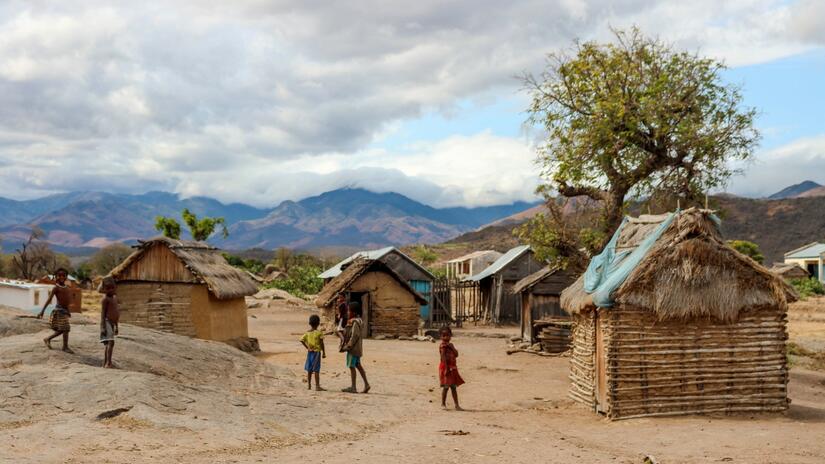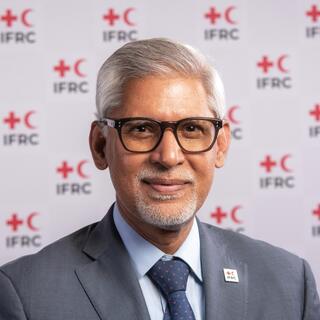Excellencies, it is my privilege to address this plenary and I thank our host, the Government of the United Kingdom for their efforts to increase attention and action on the resilience agenda.
The climate crisis is a humanitarian crisis. Every day, we are seeing the growing impacts of climate change. Loss and damage are our daily reality.
In the month of October, there were 15 weather-related disasters affecting over 14.9 million people. Since the beginning of 2021, droughts have affected 40.1 million people—the highest number since 2016.
The IFRC and our 192-member National Red Cross and Red Crescent Societies are responding to disasters and the humanitarian needs of people every day and working on local solutions to adapt to rising risks.
But the most vulnerable people are getting left behind.
The IFRC assessed which countries were the most climate-vulnerable looking at their exposure and coping capacities. We identified five countries with VERY high climate-vulnerability and a further 66 as having high vulnerability to climate-related threats.
But these countries are not getting the support they need.
Per person climate adaptation funding in 2019 averaged under one US dollar per person in very high vulnerability countries.
Somalia, the most vulnerable, ranks only 54th for per person climate change adaptation funding disbursements, whilst Afghanistan comes in 96th.
Many countries not receiving funding are fragile contexts that are hard to work in.
We must find ways to invest even where it is hard to do so, and we must collaborate to fill the gaps and get the resources to the local communities that are worst affected.
Global commitments are important, but they need to translate into local climate action. Communities, local governments, local organizations and local businesses need to be in the lead.
We will do our part. The IFRC, together with the International Committee of the Red Cross (ICRC), developed the Climate and Environment Charter for Humanitarian Organizations.
This now has over 170 signatories, and in this charter we all commit to greening our operations and to scaling up our climate action, building resilience wherever we work.
We are investing more in anticipatory action to save lives, in using nature-based solutions to build resilience, all while enabling locally-led action in the face of rising risks.
And we need to work together with you to do this.
For many people, survival is under threat today, in vulnerable countries but also in Australia, Europe, and the United States, where thousands have been killed by heatwaves, wildfires, floods and storms.
This will get worse as warming increases.
All of us will need to act before it’s too late. Let’s not miss our chance.


